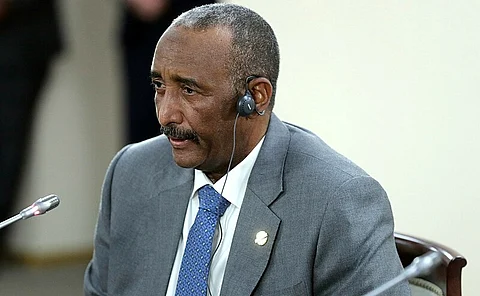

Half a million dead, millions displaced, and millions more as refugees—how did we get here?
The war in Sudan is considered one of the bloodiest conflicts of the 21st century. It also does not help that, since it is an African country, media coverage has been of low quality by international outlets. European and American media simply do not consider Sudan to be of much importance. But we will try to tell you, our dear reader, what led us here.
It all started in 2003.
At the time, Sudan’s dictator, Omar al-Bashir, faced a war in the Darfur region. It was of an ethnic nature, and like any good dictator, his solution was simple—mass violence, ethnic cleansing, and genocide. This marked the beginning of the Janjaweed, a group of Arab tribal fighters who were given uniforms and a carte blanche to do whatever they wished in the region. It is said that the mass rape in Darfur was unparalleled in the 21st century.
At the time, Omar al-Bashir—who was supported by the Muslim Brotherhood—justified the war as Islamically correct and a fight in defense of Arab values.
It did not age well.
Later, the Janjaweed were reformed into a semi-government arm of the Sudanese government and were heavily supported and subsidized by the government of Al-Bashir, this led to the RSF being practically its own army with its own sources of funding, recruitment, and arms procurement. However, even with that much love, it did not save Al-Bashir in the end, in 2018 protests erupted against him and it continued well into 2019, and the security establishment came to the conclusion that he outlived his usefulness, and therefore they deposed him with popular support.
But the honeymoon period of democracy did not last forever. Clashes between the civilian and military factions escalated until the security establishment took control of the country in 2021. However, greed surrounded Sudan’s political situation, and Hemeti felt invulnerable.
Between 2021 and 2022, a war of words erupted between the two factions, yet no one dared to fire the first shot.
Then, in 2023, the war began—the first bullet was fired, and as of the time of writing this article, the last one has yet to be.
To put it into text: The RSF is an illegal armed formation that preys on the aspirations of the Sudanese people. It seeks to present itself as a force fighting against evil Islamists while claiming to protect human rights. Meanwhile, the Sudanese Armed Forces remain the sole legitimate government institution representing the national forces of Sudan. It does not help that the RSF's widespread crimes against the Sudanese people have been documented by all sides and far exceed any allegations made against the Sudanese Armed Forces. The author would like to note that he had personal Sudanese associates whose female relatives had the misfortune of encountering the RSF militias; the details would be too graphic to describe.
It would be futile for this article to detail every military action in a war that has spanned over two years. However, what follows can be considered a "typical" day in this bloody conflict.
The RSF would either besiege or storm an area, proceeding to loot and plunder both the land and its inhabitants. They would then attempt to consolidate their gains or press their advantage. The army, in turn, would either repel them with a counterattack or withdraw to more favorable terrain. Naturally, this left civilians caught in the middle, often with devastating consequences. Notably, the Battle of Khartoum—officially concluded just days ago—spanned the entire two-year conflict and stands as one of the bloodiest urban battles of the 21st century.
Sudan is one of the largest countries in the world, necessitating at least some degree of interest from its regional neighbors and international partners.
The RSF has maintained relations with several African countries, including Kenya, Rwanda, and Ethiopia. Its primary backer is widely considered to be the UAE. During the era of the Wagner PMC, the RSF also had business ties with the Russian mercenary group, though Russia has since withdrawn its support and now officially recognizes the Sudanese Armed Forces (SAF) as the sole legitimate faction in the civil war. Allegations of business relations between the RSF and the Libyan National Army (LNA) have also surfaced, though they remain unproven.
On the other hand, the SAF has maintained relations with most of the international community, as it is recognized as the legitimate representative of the Sudanese government. Its primary backer, both diplomatically and materially, is Egypt—a natural alignment, given that the most pro-Egyptian faction in Sudanese politics has historically been the military. General Burhan frequently expresses gratitude to Egypt in his addresses. Additionally, the Islamic Republic of Iran has supported the Sudanese Armed Forces with weapons and equipment.
Currently, Sudan is engaged in an ICJ court case against the UAE, accusing it of backing the RSF and committing acts of genocide.
The Battle of Khartoum is over, the RSF is on the backfoot, and one day, normal life will return to Sudan. Is that day today or tomorrow? Most likely not, but people are resilient, and the Sudanese are no exception. Their hearts have bled for far too long, and they deserve all the support they can get. If you are able, please consider donating to charities involved in Sudan.